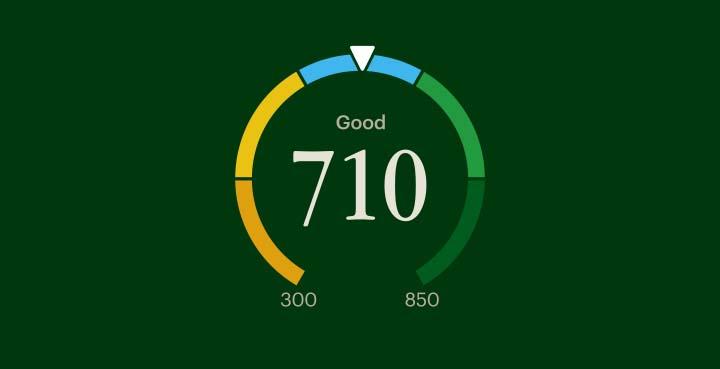
When assessing the advantages of a good credit score, it's essential to recognize the parameters that remain unaffected by it. While a strong credit score can open doors to favorable interest rates, better credit card offers, and easier loan approvals, there are critical aspects of personal and financial life it doesn't influence. Here, we will explore what a good credit score does not impact, focusing on specific parameters.
Understanding a Good Credit Score
A good credit score is typically within the range of 670 to 739, according to the FICO score model, which is one of the most common scoring systems. This score reflects a consumer's creditworthiness based on their credit history, including payment history, credit utilization, length of credit history, types of credit in use, and recent credit inquiries.
While a good credit score typically facilitates borrowing, there are certain situations where it may not be advantageous or may not sufficiently impact the terms of borrowing:
-
Interest Rate Ceilings: If you're applying for a loan with an interest rate ceiling, like certain student loans, everyone may receive the same rate regardless of credit score.
-
Predatory Lending Practices: In scenarios where predatory lenders target vulnerable borrowers, a good credit score might not protect you from the high interest rates or onerous terms these lenders might impose.
-
Economic Crises: During economic downturns, lenders may tighten their lending standards across the board, and even borrowers with good credit scores could face stricter borrowing terms or even denial.
-
Regulated Loans: Some loans, particularly those intended for low-income borrowers or those in economically disadvantaged areas, may have terms set by law or policy, not by credit scores.
-
Income Constraints: If your income level is low or unstable, lenders might consider you a higher risk despite a good credit score and might not offer favorable loan terms.
-
Debt-to-Income Ratio: A high debt-to-income ratio can overshadow a good credit score, leading to denied applications or less favorable loan conditions.
-
Loan Size: For very large loans, such as jumbo mortgages, a good credit score alone might not be enough to secure the best terms, as lenders consider additional factors.
-
Credit History Depth: Lenders look for a lengthy credit history. A good score with a short credit history might not be as beneficial as the same score with a long, robust credit history.
-
Asset Assessment: Without substantial assets, a borrower with a good credit score might not get the best terms on secured loans.
-
Business Loans: For business borrowing, the creditworthiness of the business itself can be as important, if not more so, than the owner's personal credit score.
In each of these scenarios, other factors can overshadow the benefit of a good credit score, and borrowers might not receive the borrowing benefits they expect solely based on their creditworthiness.
Parameters Unaffected by a Good Credit Score
Parameter 1: Personal Demographics
Credit scores are designed to reflect the risk associated with lending to an individual based solely on their financial behavior, not their personal attributes. Here's how:
- Marital Status: A person’s marital status, whether single, married, or divorced, does not factor into their credit score.
- Sex: Gender has no bearing on a credit score calculation.
- Nationality: A credit score does not consider an individual's country of origin.
- Religion and Race: Lending decisions based on religion or race are illegal; hence, these characteristics do not influence credit scores.
Parameter 2: Income and Employment
- Client’s Income: While a higher income may impact an individual's ability to repay debts, it doesn’t directly affect the credit score.
- Employment History and Occupation: Long-term employment might suggest financial stability but isn't a factor in the credit score itself.
Parameter 3: Other Financial Obligations
- Rental Agreement: Regular rent payments, unless reported to the credit bureau, typically do not influence credit scores.
- Child Support and Family Obligation: While failure to pay child support can harm your credit score if reported to the credit bureaus, simply having such obligations doesn't affect the score.
Parameter 4: Age
- Age: A person's age is not a determinant in the credit scoring model.
Parameter 5: Certain Types of Inquiries
- Certain Types of Inquiries: While hard inquiries from lenders can impact a credit score, not all inquiries do. For instance, personal credit checks, employment checks, or pre-approved offers (soft inquiries) do not.
Benefits of a Good Credit Score
| Benefits of a Good Credit Score | Proofs |
|---|---|
| Lower interest rates on loans and credit cards | According to a report from the Consumer Financial Protection Bureau, those with higher credit scores typically receive more favorable interest rates. |
| Better chance for credit card and loan approval | Data from lending studies indicates applicants with good credit scores are more likely to be approved for credit products. |
| More negotiating power | Lenders are often more willing to negotiate terms with individuals who have good credit. |
| Easier approval for renting houses and apartments | Many landlords consider credit scores during the tenant screening process. |
| Better car insurance rates | Some states allow insurers to use credit scores when determining premiums, often offering lower rates to those with good credit. |
| No need for security deposits on utilities | Utility companies may waive security deposits for customers with proven creditworthiness. |
In conclusion, while a good credit score is an invaluable asset in many financial scenarios, it is not a universal measure of personal value or ability. It does not reflect one's demographics, income, most non-credit financial obligations, age, or certain types of credit inquiries. Consumers should aim to maintain a good credit score for its financial benefits while recognizing its limitations in other areas of life.

